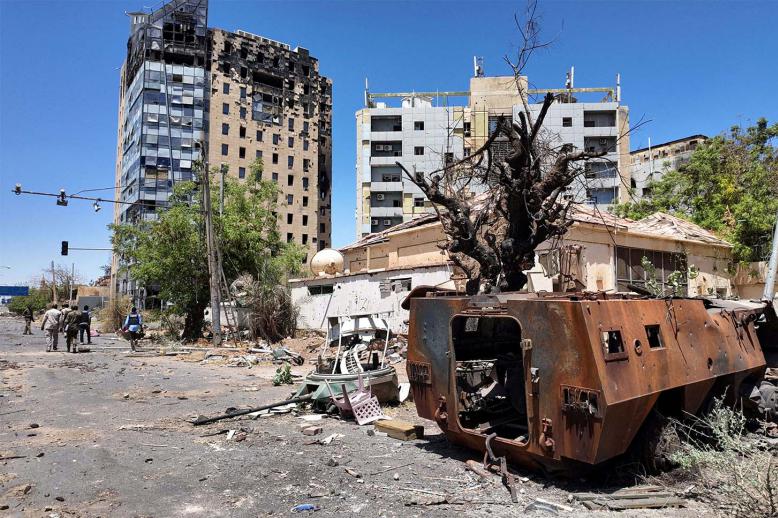Abadi edged out of prime minister’s race but real change in Iraq remains remote
LONDON - Violent protests in the southern Iraqi city of Basra are pushing the country’s biggest political blocs to agree on a deal that would prevent incumbent Prime Minister Haider al-Abadi from securing a second term in office.
In an apparent reversal, influential Shia cleric Muqtada al-Sadr, whose bloc finished first in May’s elections, withdrew his backing for Abadi, whose political alliance was third in the vote. Al-Sadr agreed instead to discuss a consensus candidate with Hadi al-Amiri, an Iran-backed militia leader whose bloc took the second-most votes in the election.
The move came after Grand Ayatollah Ali al-Sistani, Iraq’s highest Shia religious authority, called for the formation of a government that would be different from previous ones.
Although nothing is impossible in Iraq’s fickle politics, it is very unlikely that al-Sadr would return to supporting Abadi as prime minister, especially since he criticised the prime minister for not meeting protesters’ needs and after Abadi himself indicated that he would not be seeking a second term.
“We respect the high religious authority (of Sistani) and answer its call. We have not sought to cling to power or a second term,” Abadi said on September 13.
“I’ve said from the start that I would surprise you and you’ll see how I don’t cling to power. I think that pledge has been fulfilled today. Just as we have given a lesson in combating terror, unifying the country and fighting sectarianism, we would also give a lesson in giving up power and ensuring a peaceful transition.”
Abadi’s departure would be welcome news for Tehran because he had pledged to abide by US sanctions against Iran.
“The Iranians do not have the ability to open a front against the Americans in Iraq, so they are satisfied with the blow that they directed to the Americans by burning Abadi,” an unidentified al-Sadr negotiator told Saudi newspaper Arab News.
Observers said Abadi’s dropping out of the race for prime minister doesn’t rule out his bloc’s participation in a coalition government.
Others said that, despite his statement, Abadi may end up returning as prime minister. “The negotiations are still ongoing,” political analyst Ihsan al-Ashaari told the Associated Press.
Media circles in Iraq, however, were discussing possible candidates that al-Sadr and Amiri might agree on. One name being touted was Shia politician Adil Abdul-Mahdi, who previously served as oil minister, finance minister and vice-president.
According to Al-Sharqia news presenter Ahmed al-Mulla Talal, al-Sadr and Amiri have each suggested a list of names and Abdul-Mahdi was the only one on both lists. There has been no official confirmation on the consensus on Abdul-Mahdi from either camp.
Al-Sadr posted on Twitter that he agreed “with those who are big in Iraq” on suggesting a number of “independent technocrats” as prime minister. His suggestion faces the objection of some politicians “who want to take Iraq back to square one and bring back corrupt politicians in new garments,” al-Sadr said. “If they continue then I will announce joining the opposition.”
Critics say Abdul-Mahdi did not enjoy a shining record when he led the two ministries and thus does not offer a compelling reason that he would do better as a prime minister. Also, being a career politician who rose from the ranks of the Islamic Supreme Council of Iraq, Abdul-Mahdi hardly fits the definition of a technocrat.
Even if a technocrat does assume power, there is no guarantee he would implement radical changes without a more encompassing political will.
“A technocratic government can be just as internally incoherent as all of Iraq’s post-2003 governments,” wrote Zaid al-Ali in the Washington Post. “Ministers in all post-2003 governments have never agreed to a coherent strategic plan, do not accept joint liability for failure and are always prepared to undermine each other.”
Mamoon Alabbasi is Deputy Managing Editor and Online Editor of The Arab Weekly. You can follow him on Twitter @MamoonAlabbasi
This article was originally published in The Arab Weekly.







